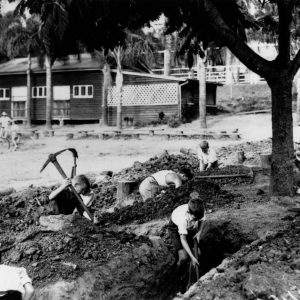
Southern Charm in the Modern Age: Navigating Tradition and Change
Charleston. Savannah. New Orleans. The very names conjure images of grand antebellum mansions, moss-draped oaks, and mint juleps sipped on sprawling verandas. The American South, steeped in a rich history and woven with complex threads of tradition, has always held a certain mystique. But how does this heritage, with its undeniable beauty and undeniable baggage, fare in the rapidly evolving landscape of the 21st century? This isn’t just about sweet tea and seersucker suits; it’s about navigating a delicate balance between honoring the past and embracing the future.
The Ghosts of Gentlemen and Belles: Reckoning with History
The allure of Southern charm is undeniable, often romanticizing a bygone era of perceived gentility and grace. However, beneath the surface lies a painful history of slavery, segregation, and inequality. Modern Southerners grapple with this legacy in a myriad of ways:
-
Acknowledging the Past: Confronting uncomfortable truths about the region’s history is paramount. Museums, historical sites, and community initiatives are vital in fostering open dialogue and promoting education.
-
Challenging Misconceptions: Refuting stereotypes about Southern hospitality and the “Lost Cause” narrative are crucial. Moving beyond romanticized portrayals requires critical engagement with the past.
-
Promoting Inclusivity: Creating spaces where all voices are heard and valued is essential for building a more equitable and just South.
| Historical Topic | Modern Interpretation | Actionable Example |
|---|---|---|
| Antebellum Architecture | Preserving beauty while acknowledging enslaved labor | Including narratives about enslaved people on tours |
| Confederate Monuments | Recontextualizing or removing symbols of oppression | Replacing Confederate monuments with inclusive artwork |
| “Southern Hospitality” | Extending genuine warmth to all, regardless of background | Hosting community events promoting diversity and inclusion |
Beyond the Bow Tie: Redefining Southern Masculinity
Traditional Southern masculinity often emphasizes stoicism, chivalry, and a strong sense of duty. While these qualities aren’t inherently negative, rigid adherence to these ideals can be limiting and even harmful. Modern Southern men are redefining masculinity by:
-
Embracing Vulnerability: Challenging the stereotype of the emotionally detached man and fostering open communication.
-
Promoting Gender Equality: Actively supporting women’s rights and challenging patriarchal norms.
-
Rejecting Harmful Stereotypes: Moving beyond the image of the “good ol’ boy” and embracing a more inclusive and nuanced identity.
Sweet Tea and Tech Startups: Economic Transformation
The Southern economy is no longer solely reliant on agriculture and traditional industries. A surge in technology, healthcare, and tourism is reshaping the region’s economic landscape. This transformation brings both opportunities and challenges:
-
Economic Growth: The influx of new industries creates jobs and stimulates economic development.
-
Urban Sprawl: Rapid growth can lead to environmental concerns and strain infrastructure.
-
Preserving Authenticity: Balancing economic development with the preservation of the South’s unique culture and heritage.
| Economic Sector | Old South Emphasis | New South Emphasis |
|---|---|---|
| Agriculture | Tobacco, Cotton | Sustainable Farming |
| Manufacturing | Textiles, Shipbuilding | Tech, Aerospace |
| Tourism | Antebellum History | Culinary Tourism |
The Rise of Southern Cuisine: From Grits to Global Fusion
Southern cuisine, once often associated with heavy comfort food, is undergoing a culinary renaissance. Chefs are honoring traditional ingredients and techniques while incorporating global influences and embracing sustainable practices.
-
Farm-to-Table Movement: Emphasizing locally sourced ingredients and supporting local farmers.
-
Global Influences: Incorporating flavors and techniques from other cultures to create innovative dishes.
-
Healthier Options: Offering lighter and more nutritious versions of classic Southern dishes.
The Future of Southern Charm: A Balancing Act
Southern charm in the modern age is a delicate balancing act. It’s about preserving the beauty and traditions that make the region unique while acknowledging the past and embracing progress. It’s about fostering a more inclusive, equitable, and sustainable South for all.
It’s not about clinging to outdated ideals, but rather about redefining what it means to be Southern in the 21st century. It’s about creating a South where tradition and progress can coexist, where history is acknowledged and learned from, and where everyone feels welcome at the table – even if they prefer iced coffee over sweet tea. The future of Southern Charm lies in its ability to evolve, adapt, and embrace a more inclusive and nuanced understanding of its past, present, and future.

Additional Information
Southern Charm in the Modern Age: Navigating Tradition and Change – Deeper Dive
The concept of “Southern Charm,” often romanticized and simultaneously critiqued, represents a complex tapestry of traditions, social expectations, and evolving cultural norms. In the modern age, this tapestry is being pulled, reshaped, and re-evaluated as Southern society grapples with modernization, diversification, and a broader global consciousness. While the outward expressions of charm – politeness, hospitality, and a certain grace – remain present, the underlying power dynamics and social structures they often masked are increasingly being challenged and transformed. This deeper analysis delves into specific areas where this tension between tradition and change is most pronounced, examining the evolving role of gender, race, social class, and the impact of external influences on Southern identity.
1. Re-evaluating Gender Roles and Expectations:
Historically, Southern Charm placed significant emphasis on gender roles, particularly for women. The ideal “Southern Belle” was poised, demure, and focused on domesticity, often prioritizing family and community over personal ambition. While this archetype still persists to some extent, its influence is waning.
- The Rise of Female Entrepreneurship: The South is witnessing a burgeoning of female-owned businesses, driven by women seeking economic independence and challenging traditional career paths. Data from the U.S. Census Bureau shows a significant increase in women-owned businesses in Southern states, particularly in areas like Atlanta and Austin. This economic empowerment allows women to redefine their roles and exert greater influence in traditionally male-dominated spheres.
- Shifting Marital Dynamics: Attitudes towards marriage and family are also changing. Later marriages, increased divorce rates, and a greater acceptance of single parenthood are becoming more common in the South, mirroring national trends. This shift challenges the traditional notion of marriage as the ultimate goal for Southern women and opens up avenues for individual fulfillment outside of traditional familial structures. A Pew Research Center study on marriage in the South highlights this evolving landscape, showcasing a move away from rigidly defined marital roles.
- The “Southern Belle” Reimagined: While some embrace the traditional Southern Belle aesthetic, others are actively subverting it. They are redefining femininity on their own terms, blending traditional elements with modern perspectives. For example, a Southern woman might embrace the charm and hospitality while simultaneously pursuing a demanding career and advocating for social justice. This “new Southern Belle” embodies strength, intelligence, and a willingness to challenge outdated norms.
2. Confronting Racial Injustice and Inequality:
The legacy of slavery and segregation casts a long shadow over the South, and the concept of Southern Charm has often been used to mask deep-seated racial inequalities. However, a growing awareness and activism are forcing a reckoning with this history.
- Historical Reckoning and Memory: Communities across the South are engaging in difficult conversations about their history, including the role of slavery and the Confederacy. Removing Confederate monuments, renaming schools and streets, and creating spaces for dialogue and reconciliation are crucial steps towards dismantling the symbols of systemic racism. For example, the ongoing debate surrounding the removal of Confederate statues in New Orleans illustrates the complex and often contentious process of re-evaluating historical narratives.
- Addressing Economic Disparities: Significant economic disparities persist between racial groups in the South, rooted in historical injustices and ongoing discrimination. Efforts to promote equitable access to education, healthcare, and economic opportunities are essential for creating a more just and inclusive society. Organizations like the Southern Poverty Law Center are actively working to dismantle systemic barriers and promote racial equality.
- Reclaiming Southern Identity: Black Southerners are increasingly reclaiming their role in shaping Southern identity. They are highlighting the contributions of Black artists, musicians, writers, and activists to Southern culture and challenging the dominant narrative that often marginalizes their experiences. Initiatives like the Black Lives Matter movement have also galvanized a new generation of activists to demand racial justice and equality in the South.
3. Navigating Class Divisions and Social Mobility:
Southern society has historically been characterized by stark class divisions, with a rigid social hierarchy often determined by wealth and lineage. While these divisions still exist, the rise of a middle class and increased social mobility are challenging the traditional social order.
- The Erosion of Old Money Influence: The influence of old money families, who once held significant power and prestige in Southern society, is gradually waning. Economic diversification and the influx of new industries are creating opportunities for individuals from different backgrounds to accumulate wealth and influence.
- The Role of Education: Access to quality education is crucial for promoting social mobility and breaking down class barriers. Investing in public education, expanding access to scholarships and financial aid, and creating pathways for individuals from disadvantaged backgrounds to pursue higher education are essential for creating a more equitable society.
- Redefining Social Status: Traditional markers of social status, such as membership in exclusive clubs and adherence to strict social etiquette, are becoming less relevant. Individuals are increasingly defining their social status based on their professional achievements, community involvement, and personal values.
4. Embracing External Influences and Global Connections:
The South is no longer an isolated region, but rather an increasingly interconnected part of the global economy and culture. The influx of new residents, industries, and ideas is transforming Southern society in profound ways.
- Urbanization and Development: Rapid urbanization and development are transforming Southern cities, attracting new residents from across the country and around the world. This influx of new ideas and perspectives is challenging traditional Southern values and fostering a more diverse and cosmopolitan culture.
- Economic Diversification: The Southern economy is diversifying beyond its traditional reliance on agriculture and manufacturing. Emerging industries like technology, healthcare, and tourism are creating new opportunities for economic growth and development. States like North Carolina, with its Research Triangle, and Georgia, with its growing film industry, are prime examples of this diversification.
- Cultural Hybridity: The blending of Southern culture with other cultures is creating a unique and vibrant cultural hybridity. This is evident in the region’s music, art, food, and literature. For example, the fusion of Southern cuisine with international flavors is creating a new and exciting culinary landscape.
Conclusion:
Navigating tradition and change is an ongoing process for the South. While the outward expressions of Southern Charm may persist, its underlying meaning and significance are being redefined in the context of a rapidly changing world. By confronting its past, embracing diversity, and promoting equity, the South can build a more just, inclusive, and prosperous future while preserving the positive aspects of its unique cultural heritage. The key lies in critically examining the traditional norms embedded within the concept of “Southern Charm” and actively working towards a future where hospitality and politeness are not used to mask inequality, but rather to foster genuine connection and understanding across different backgrounds and experiences. This requires continuous self-reflection, open dialogue, and a commitment to building a more equitable and inclusive South for all its residents.






